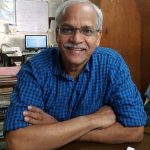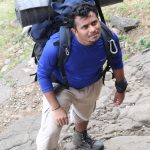About CAT
Conservation Action TrustOur Purpose
CAT’s Mission Statement
“To conserve India’s natural wealth and increase India’s sensitivity towards forests, wildlife and rivers through research, education, public participation and, when necessary, judicial intervention.”
CAT’s vision for the future
A future India where there is widespread understanding and appreciation of nature and its values, and where the quality of life is better due to our respect for nature being reflected in our institutions and our law.
CAT is dedicated to provide assistance in the form of technical information, legal advice, aid and equipment to all those who are confronting environmental problems.
CAT works closely with the Forest Departments and other NGOs that are fighting to protect nature and natural resources. Current campaigns include actively protecting the Mangroves and Biodiversity in India, looking at low carbon future and Renewable Energy in India and ensuring that forests are not distributed to appease industrialists and voters.
Board Of Trustees
Debi Goenka
 Debi Goenka is an environmentalist, who started his love affair with the environment in 1974, during his college days, first as a volunteer with the WWF and BNHS. In later years, he has worked with WWF-India, has been elected to the Executive Committee of the BNHS for a number of terms, and has been associated with various other NGOs such as SOCLEEN, BEAG, INTACH, Indian Heritage Society, etc. He has also served on various Committees appointed by the Bombay High Court, the Ministry of Environment & Forests, and the Maharashtra Government.
Debi Goenka is an environmentalist, who started his love affair with the environment in 1974, during his college days, first as a volunteer with the WWF and BNHS. In later years, he has worked with WWF-India, has been elected to the Executive Committee of the BNHS for a number of terms, and has been associated with various other NGOs such as SOCLEEN, BEAG, INTACH, Indian Heritage Society, etc. He has also served on various Committees appointed by the Bombay High Court, the Ministry of Environment & Forests, and the Maharashtra Government.
As the Executive Trustee of Conservation Action Trust, he continues to spearhead the issues regarding the conservation and protection of the environment. He stresses on the role of forests in protecting the water security of the country.
He has pioneered several successful campaigns to protect the natural environment. Some of the most notable success stories have been the protection of mangroves, the protection of the Borivili National Park, and the success in protecting over 3,500 square kilometres of forests in Vidarbha from denotification. He has also been involved in campaigns to prevent the denotification of the Melghat Tiger Sanctuary, for the notification of Dahanu Taluka as an ecologically sensitive area, for the protection of the coastal areas of Murud Janjira, the declaration of the Nandur – Madhameshwar bird sanctuary and the Tungareshwar sanctuary, as well as the campaign against Enron. He has been largely responsible for the CRZ Notification of 1991, as well as the notifications for the protection of Mahableshwar-Panchgani, Matheran and the Kaziranga ESZ (Numaligarh refinery).
From Mangoes to Mangroves – TEDx talk by our Executive Trustee, Mr. Debi Goenka.
K. J. Joy
 Mr. Joy is a founding member of Society for Promoting Participative Ecosystem Management (SOPPECOM), Pune and works with SOPPECOM as a Senior Fellow (www.soppecom.org). He has been an activist-researcher for more than 30 years and has worked as a full time grassroots activist with Mukti Sangharsh Movement, South Maharashtra, for about eight years. He has worked with Bharat Gyan Vigyan Samithi (BGVS) in its watershed development and resource literacy programme. He was a Visiting Fellow with the Centre for Interdisciplinary Studies in Environment and Development (CISED), Bangalore (now part of ATREE) and was a Fulbright Fellow with the University of California at Berkeley. He coordinates the national level network on water conflicts, “Forum for Policy Dialogue on Water Conflicts in India” (www.waterconflictforum.org). Presently he is also involved in the CCMCC-NWO research project, “Hydropower development in the context of climate change: Exploring conflicts and fostering cooperation across scales and boundaries in the Eastern Himalayas”.
Mr. Joy is a founding member of Society for Promoting Participative Ecosystem Management (SOPPECOM), Pune and works with SOPPECOM as a Senior Fellow (www.soppecom.org). He has been an activist-researcher for more than 30 years and has worked as a full time grassroots activist with Mukti Sangharsh Movement, South Maharashtra, for about eight years. He has worked with Bharat Gyan Vigyan Samithi (BGVS) in its watershed development and resource literacy programme. He was a Visiting Fellow with the Centre for Interdisciplinary Studies in Environment and Development (CISED), Bangalore (now part of ATREE) and was a Fulbright Fellow with the University of California at Berkeley. He coordinates the national level network on water conflicts, “Forum for Policy Dialogue on Water Conflicts in India” (www.waterconflictforum.org). Presently he is also involved in the CCMCC-NWO research project, “Hydropower development in the context of climate change: Exploring conflicts and fostering cooperation across scales and boundaries in the Eastern Himalayas”.
He has a special interest in people’s institutions for natural resource management, especially water, both at the grassroots and policy levels. His other areas of interests include drought and drought proofing, participatory irrigation management, river basin management and multi-stakeholder processes, watershed based development, water and sanitation, biodiversity, water conflicts and people’s movements.
He has published extensively on water and development issues and some of his co-authored/edited books include: 1) Sustainable Technology: Making Sardar Sarovar Project Viable; 2) Banking on Biomass: A New Strategy for Sustainable Prosperity Based on Renewable Energy and Dispersed Industrialisation; 3) Watershed Based Development: A Source Book; 4) Sustainable Prosperity: Sustaining and Enabling Natures Productive Powers; 5) Water: Sustainable and Efficient Use; 6) Community-based Natural Resource Management: Issues and Cases from South Asia; and 7) Water Conflicts in India: A Million Revolts in the Making.
He is the recipient of the TN Khoshoo Memorial Award for 2016.
Lyla Bavaadam
 Lyla Bavaadam was a journalist for 30 years of which 26 years were with Frontline magazine of The Hindu group where she primarily wrote on the environment, development issues, state politics of Maharashtra and Gujarat and architectural heritage.
Lyla Bavaadam was a journalist for 30 years of which 26 years were with Frontline magazine of The Hindu group where she primarily wrote on the environment, development issues, state politics of Maharashtra and Gujarat and architectural heritage.
She has a firm pro-environment stand believing that humans are entitled to only a small part of Nature and development in its current usage leaves a footprint that is actually counter-productive.
Gautam Patel
 Mr G. S. Patel is a former Justice of the Bombay High Court. He started his practice in 1987 in Mumbai, working on commercial, corporate and civil litigations and also appearing in a large number of environmental public interest litigations including those relating to the Sanjay Gandhi National Park, protection of mangroves, town and country planning issues, Melghat National Park, the Mill Lands, protection of open spaces, etc. Mr. Patel is known for his unique, scholarly, eminently readable style of writing judgements, his sense of equity, wit, candour, humour and his ability to complete justice for the less fortunate.
Mr G. S. Patel is a former Justice of the Bombay High Court. He started his practice in 1987 in Mumbai, working on commercial, corporate and civil litigations and also appearing in a large number of environmental public interest litigations including those relating to the Sanjay Gandhi National Park, protection of mangroves, town and country planning issues, Melghat National Park, the Mill Lands, protection of open spaces, etc. Mr. Patel is known for his unique, scholarly, eminently readable style of writing judgements, his sense of equity, wit, candour, humour and his ability to complete justice for the less fortunate.
From 2008-2011 he was a part-time lecturer in Administrative Law, Constitutional Law and Environmental Law at Government Law College. Mr. Patel wrote a weekly newspaper column in the Mumbai Mirror for three years. He has also contributed articles to articles and reviews to the Economic & Political Weekly, TimeOut Mumbai, the Mumbai Reader, etc.
Mr Patel has served as a trustee on several public charitable trusts and foundations in the fields of education, environment and the hearing-impaired. Recently, he has also joined as a Distinguished Professor of Practice at D. M. Harish School of Law (HSNC University, Mumbai), reflecting his dedication to shaping the future of legal education
Team of Lawyers
High Court of Bombay
• Late Saleh Doctor
• Rafique Dada
• Janak Dwarkadas
• Harish Jagtiani
• Navroz Seervai
• Gautam Patel
• Gayatri Singh
• Mihir Desai
• Rajan Jayakar
• Mustafa Doctor
• Shiraz Rustomjee
• Ameet Hariani
• Sharan Jagtiani
• Ajay Vazirani
• Aditya Khandeparkar
• Gulnar Mistry
• Prembhari Thakkar
• Jai Chhabria
• Nimay Dave
• Kushal More
• Rohan Rajadhyaksha
• Tanmayee Gadre Rajadhyaksha
• Ushajee Peri
• Lara Jesani
• Shreya Parikh
• Jahaan Dastur
• Anand Sarnath
• Apurva Gupte
• Vinamra Kopariha
• Zaman Ali
• Meenaz Kakalia
• Rishika Harish
Supreme Court of India
• Late T R Andhyarujina
• Indu Malhotra
• Shyam Divan
• Madhavi Divan
• Bharat Kumar
• Nina Nariman
• Madhusmita Bora
High Court of Nagpur
• Chandrashekhar Kaptan
• Sudhir Puranik
National Green Tribunal, West Zone Bench
• Fawia Mesquita
• Anirudha Joshi
National Green Tribunal, South Zone Bench
• T K Ramkumar
• Yogeshwaran Amarneethi
National Green Tribunal, Principal Bench
• Ritwick Dutta
• Rahul Choudhary
CAT Staff

Prasad holds Masters in Environmental Science. In past he has worked at NEERI (National Environmental Engineering Research Institute) and NITIE (National Institute of Industrial Engineering), Mumbai. He also has keen interest in wildlife and trekking.
Prasad currently works on the environmental issues, specially related with pollution. He focuses on the background research required for the CATs legal cases, particularly the Vehicular Pollution matter. He also works and prepares critiques on the EIA reports and various notifications.
